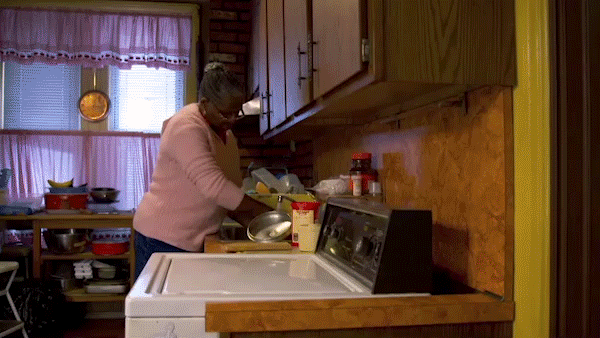Elder-care provider: ‘We want respect and a living wage’

For more, check out the rest of America Tonight’s special series “Aging America”
As more Americans live longer and longer, 79 percent of people who need long-term care live at home or in community settings. By 2050, the number of elderly people who will receive long-term care is expected to reach 27 million, up from 13 million in 2000.
So, who's providing all this caretaking?
Many of the people who care for all these seniors receive low pay, often below their state’s minimum wage. Few receive health benefits, and most states offer no protections for harassment, abuse or unsafe and unsanitary conditions. Hours can be long and irregular, and client turnover may suddenly cut off their incomes. The need for caretakers is urgent, their work intimate and demanding, but the median pay is just $16,800 a year.
On Tuesday, America Tonight’s special series "Aging America" continues with a profile of Marlene Champion, a 68-year-old Barbados native who has worked as a caregiver for the elderly for more than 30 years, and in domestic care since the age of 14.
"I cook, wash, clean, vacuum, shopping, [help with] doctor visits," she said. "If there's a nail to nail, I'll nail it. If something's being undone, I'll try to fix it."
Working with the elderly can be a huge challenge, she said, as the people under her care have early dementia, Alzheimer’s, or both.
"Some of them spit on you. Some of them hit you. Some of them deliberately do dirty things,” she told America Tonight. “You have to put yourself in the same frame of mind as they're in, because if you are not strong enough as a caregiver – mentally you're not strong enough – you'll break."
Champion's first job in the U.S. was caring for an 89-year-old doctor. By the time the man died seven years later, she could barely get by on her salary.
"I was working for like $400 a week," she said. "One time I sat down, I carefully put together everything that I have to do for the month. And for the money that I was bringing in … it came out to $25 less than what I was bringing home. And I didn't have food in there."
These days, she’s caring for a Brooklyn senior named Leslie, who describes Champion as attentive, reliable and nice.
Cooking, cleaning, doing laundry, doling out medicine and simply providing him company are some of her many duties, large and small. On top of this job, Champion works as a nanny and cooks for her friends. Yet, she still finds it hard to scrape by.
"You cannot save anything," she said. "It's like that cup of coffee, if you're cold in the morning, you cannot afford to buy. I cannot do the things that some people do. Very seldom I go to a restaurant. Maybe for my birthday I go for breakfast at IHOP.”
Champion doesn’t have the money, or the time, to go out anywhere, like a movie. She goes from home to work, and then straight to church. Caregiving can be strenuous and the hours are long, yet clients often undervalue it, she said.
"People have to learn that one of the greatest things for a caregiver is respect – and a decent salary," she said. "They want to pay you $5 an hour, and they want you to work 10, 12 hours a day for that.”
Champion’s hopeful that she’ll be able to enjoy retirement of her own someday.
"At this stage of my life, I shouldn't have to be working so hard to make ends meet," she said. "But when I get things together, I'm out of here. I want to enjoy a little bit of life before the good Lord decide to take me home."
Are you a taking care of a loved one? We want to hear from you.
Tell us about your experiences as a caretaker and how it has affected your life. You can share your responses here, via email at SharingMyStory@aljazeera.net or using the hashtag #AgingAmerica on Twitter.
Error
Sorry, your comment was not saved due to a technical problem. Please try again later or using a different browser.